Search Images
Browse Content (p. 1665)

Image
Fountain of Trajan, Ephesus
Built around 104 CE, the fountain of Trajan is one of the finest monuments in Ephesus. It was constructed in honor of Roman Emperor Trajan. The pool of the fountain was 20×10 meters, surrounded by columns and statues. These statues were of...

Image
Columns, Temple of Apollo, Side
The restored Temple of Apollo, built in the 2nd half of the 2nd century CE in the Corinthian order, Side (Pamphylia, Turkey).
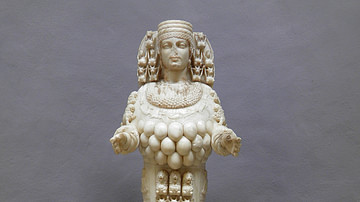
Image
Artemis of Ephesus
Marble statue of the Ephesian Artemis, 125-175 CE. (Selcuk Museum, Selcuk, Turkey)
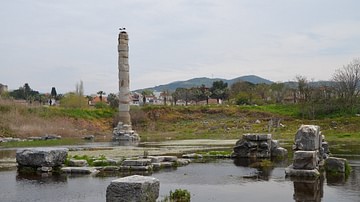
Image
Temple of Artemis, Ephesus
The lonely reconstructed column standing on the site of the Temple of Artemis at Ephesus. The Temple of Artemis, also known as the Artemesium, was constructed in the mid 6th century BCE and was considered to be one of the Seven Wonders of...
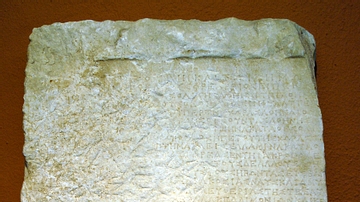
Image
Decree of Themistocles (or Troezen)
The Decree of Themistocles, also known as the Decree of Troezen, which describes details of the Battle of Salamis in 480 BCE. The tablet itself is dated to the 3rd century BCE and is a copy of a 5th century BCE papyrus text. (National Archaeological...

Image
Ruins of Sardis
Ruins of the ancient city of Sardis, the capital of the kingdom of Lydia, located in western Anatolia, present-day western Turkey.
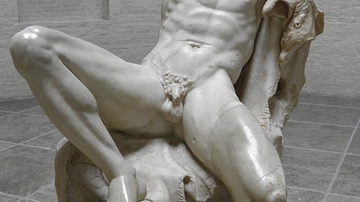
Image
Drunken Satyr
Marble statue known as the Barberini Faun or Drunken Satyr, copy by a Hellenistic sculptor of the Pergamene school of a bronze original, circa 220 BCE. (Glyptothek, Munich)
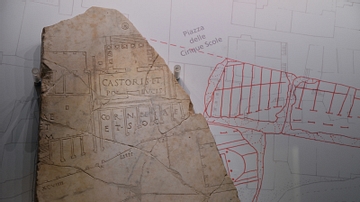
Image
Map of Rome fragment
Forma Urbis (marble plan of ancient Rome) from the Via Anicia, fragment depicting the late Republican Temple of Castor and Pollux in Circo Flaminio, 1st half of 2nd century CE (National Museum of Rome, Baths of Diocletian, Rome)
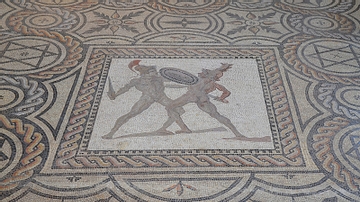
Image
Gladiator Mosaic, Reims
Mosaic pavement depicting two naked gladiators fighting. It was found in Reims (France) in 1890 and dates from the 2nd century CE.
Musée Saint-Rémi, Reims.
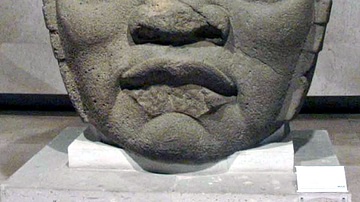
Image
Olmec Colossal Stone Head, San Lorenzo
An Olmec colossal stone head in basalt from San Lorenzo, c. 1200-400 BCE. Although all wear the hat or headdress worn during war and the Mesoamerican ballgame, each of these massive heads has unique features which suggests they depict specific...